Political Science and International Relations Optional
By Dr. Piyush Chaubey
- 4.5 Months Course Duration with Holistic Syllabus Coverage
- Value-Addition Study Material
- Advance Classes for Upgradation
- Politico Analytics Magazine
- Test Series Included
Enquiry for PSIR Optional
PSIR Optional Classes in Delhi for Foundation Program for UPSC
PSIR as a subject if picked by you for your Optionals will let you grill. However, it will make you ready for other subjects as well. Get ready to learn and absorb every element of this subject starting from Paper – 2A that will deal with international relations. Expand your horizon and make yourself comfortable in every domain under the tutelage of Dr. Piyush Kumar Chaubey. Practice these concepts through tests and inculcate the right notes of answer writing in your day-to-day habits.
In this course, Dr. Piyush Kumar Chaubey will cover PSIR – Political Science & International Relations. All the topics will be discussed in detail and would be helpful for all aspirants preparing for the UPSC CSE – Optional exam. Learners at any stage of their preparation would be benefited from the course. The course will be taught in Hinglish and notes will be provided in English.
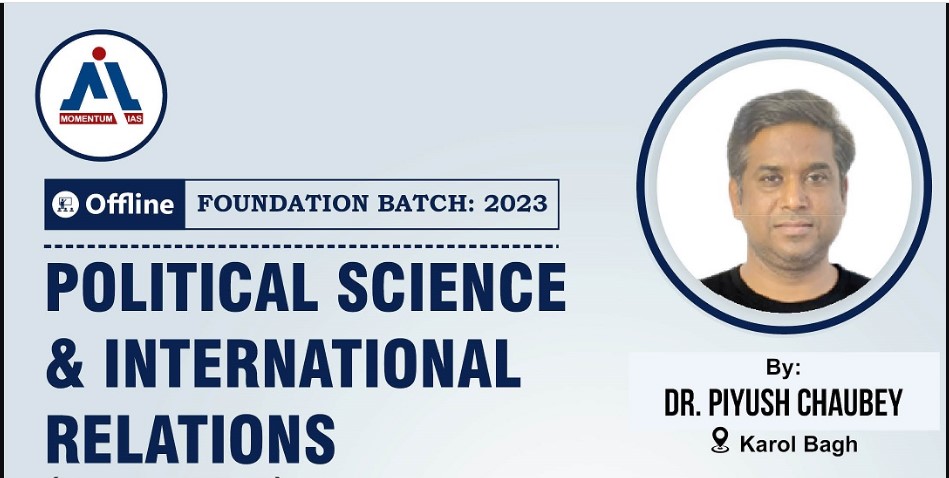
Features of Our PSIR Foundation Course

4.5 Months Course Duration with Holistic Syllabus Coverage

Complete UPSC Syllabus of Political Science and International Relations

Additional Notes for Dynamics Happening in Contemporary Times

Thorough Analysis of Topics Through Politico Analytics Magazine

Giving Scholarly Analysis of Recent Articles from East Asia Forum, ORF, IDSA, Foreign Affairs, Diplomatist

Innovative Pedagogy to Give Better Clarification and its Relation with Real-World Application

Discussion of past and previous years UPSC Question Papers.

Discussion of past and previous years UPSC Question Papers.

10 Tests - 8 Sectional and 2 Full Length Tests
About Dr. Piyush Chaubey - Best PSIR Optional Teacher in Delhi
A scholar of Political Sc. Polity and IR holding doctorate from JNU. An Ex DU faculty, taught and mentored more than 300 IAS Aspirants success.
“Political Science” is certainly an interesting subject. It has a good mix of both philosophy as well as objectivity. It deals with day-to-day happening at both local and global level and is also very dynamic. The topics discussed are also very significant.
The next question is the syllabus of the subject. The PSIR syllabus is actually limited. There are four sections, i.e. 1A] Political Theory, 1B] Indian Government and Politics, 2A] Comparative and International Politics & 2B] India and the World. There are around 40 topics in all, and if one studies systematically, four months are enough to cover the syllabus.
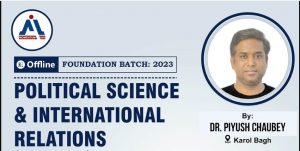
Political Science and International Relations Optional
Download PSIR Optional - Foundation Batch 2023 Course Details
Our Toppers
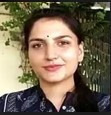



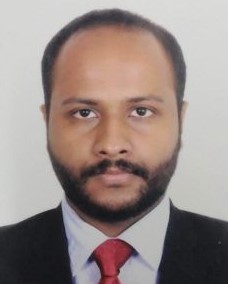
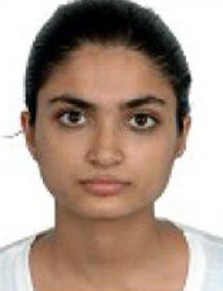


Testimonials


FAQ's on Political Science and International Relations Optional
- Political Science and International relations (PSIR Optional) can help prepare for both Prelims and Mains simultaneously.
- A bureaucrat is expected to have sound knowledge of politics around him and know the basics of political science
- The concepts in PSIR are general and they are intelligible for people from any background.
- Many topics in other papers of GS also include a huge lot of topics from this optional (According to Dr. Piyush Chaubey, approximately 65% of the whole GS syllabus either directly or indirectly overlaps with that of this optional).
- Preparing for this optional can help build one’s Current affairs as well.
- A bureaucrat is supposed to take many decisions through the course of one’s career and knowledge in PSIR can help one to opt for better choices.
- Most concepts in PSIR are interrelated and can be understood easily
- This optional has worked for many and has helped them secure top ranks
The first criteria to choose the optional is your interest. A very few students clear UPSC-CSE in their first attempt. You’ve to study the optional subject repeatedly. And hence, the first criteria should be your interest in the subject.
Political Science is certainly an interesting subject. It has a good mix of both philosophy as well as objectivity. It deals with day-to-day happening at both local and global level and is also very dynamic. The topics discussed are also very significant.
The next question is the syllabus of the subject. The PSIR syllabus is actually limited. There are four sections, i.e. 1A] Political Theory, 1B] Indian Government and Politics, 2A] Comparative and International Politics & 2B] India and the World. There are around 40 topics in all, and if one studies systematically, four months are enough to cover the syllabus.
Further, there is also a good overlap of the subject with General Studies. There is a lot in common in PSIR Section 1B and GS2 (although the approach needs to be slightly different). Section 2B also helps greatly in dealing with IR questions in GS2. The first two topics of 1B rely heaving on Modern Indian History, and the knowledge of various international organizations, treaties etc., certainly helps to answer a few questions in prelims.
“PSIR also helps in essay writing, and at times direct questions are asked on Political Science topics”. The philosophical aspects of political theory (section 1A) also aid the study of GS4 – ethics.
Political Science as an optional is not too technical or complex (though it has a lot of depth to it). Hence even a student without a humanities background can pick up very soon. There are many examples of students from engineering backgrounds choosing PSIR as an optional and then passing the exam with a good score in 1-2 years.
So, unless you’re disinterested in PSIR or in already love with some other optional, there is no reason to choose anything else.
Just like the subject, the strategy is not so complicated. What matters is how much one actually implements it.
For someone coming from a completely different background, I would suggest going through the entire notes once, regardless of you understand a thing or not. The first reading can be quick. The purpose is not at all to understand the subject but just to get acquainted with the broad picture.
Second reading onward, actually things will start to make sense. But don’t expect sudden improvement. When you’re new to anything, it takes some time to get to understand the basics. At times we don’t even know the meaning of terms that the authors take for granted, and therefore patience is the key to go ahead in the early period.
However, passion – and not patience is required to score in the subject. So actually, after a thorough reading 2nd time, you should start setting boundaries. In 3rd reading, you should fix the sources of your study. After this reading, you should have a fixed textbook or notes or a set of articles to study every topic/ subtopic in the syllabus.
It is also important to understand that in humanities, it is neither possible nor required to be 100% accurate. So never expect that you would have read every possible answer to every possible question. In the exam, if you’ve studied good enough, around 50-70 % of questions can be directly answered, while the rest you’ve to think of in real-time. So, there is a dynamic balance between being comprehensive and being practical.
After deciding the boundaries in 3rd reading and then again revising the material in 4th reading, one can actually start answer writing. Although I am suggesting to write answers after the 4th reading, you should be referring PYQs from day one. The study on every topic should be accompanied by reading PYQs asked on it. This helps us understand what we’re looking for and sets the perspective. It is essential and should not be skipped at any cost.
It is really an individual choice and preference. Some students do very well on their own and can figure out things when stuck. But there are also people who actually feel lost without a teacher. And it is difficult for them to move on at times. So, know yourself well and decide accordingly.
Classes also provide you with a peer group and a competition. If you’re entirely new to the subject, joining a coaching class also helps you avoid many of the beginner’s mistakes.
People have done well with and without classroom teaching.
We will not comment on various institutions. But keep one thing in mind that even after joining the coaching class, you have to study on your own. Don’t rely completely on teachers. Develop independent thinking and take your own decisions.
